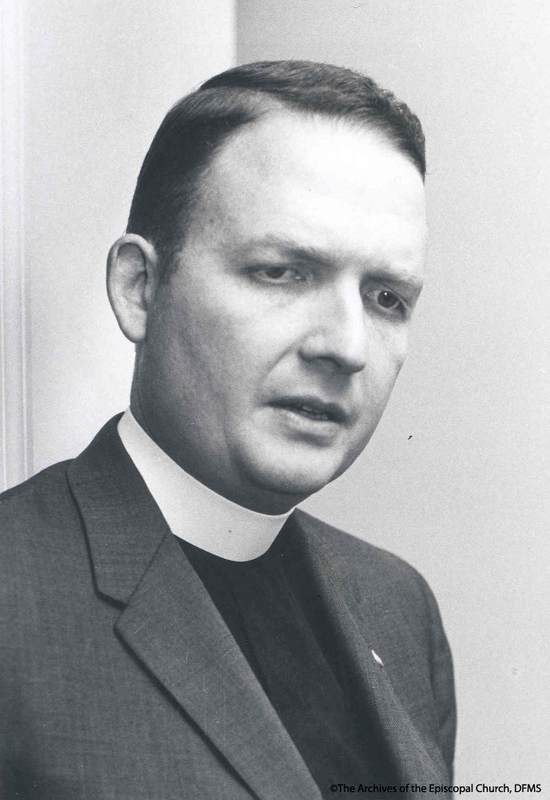Leadership Gallery
The Reverend John Burnett Morris, 1930-2010
As an activist striving to raise awareness of the racial divide in the Episcopal community, the Reverend John Morris is renown for his leadership as a founding member and Executive Director of the Episcopal Society for Cultural and Racial Unity (ESCRU). Born and baptized in Brunswick, Georgia, February 10, 1930 to Hervey Clark Morris and Annie Wright (Burnett), Morris attended public school there and went on to attend Columbia University where he graduated with a Bachelor of Arts in 1951. Shortly thereafter, in 1952, he married Harriet Barnes Pratt. He went on to attend Virginia Theological Seminary and there was awarded a Bachelor of Divinity degree in 1954. He was ordained to the deaconate in 1954 and to the priesthood the following year.
Morris served as parish priest in South Carolina from the time he was ordained until the formation of ESCRU in 1959. Morris played a critical role in the formation of the Society. In December of that year, along with the Reverends Neil Tarplee and Arthur Walmsley (members of the Episcopal Executive Council) Morris submitted a paper he had written entitled, "A Proposal: Formation in the Episcopal Church of a Church Society For Racial Unity" to at least five hundred potential members. Three hundred responded positively. The group adopted the name “Episcopal Society for Cultural and Racial Unity” and immediately took issue with the de facto racial segregation that dominated Church life in the South, which included refusing African Americans admission to Church-run institutions and to white worship services.
Appointed as the Executive Director of ESCRU in early 1960, John Morris provided leadership and inspiration that led the organization from an initial membership of 100 to over 5,000 souls, in 29 chapters in 1966. Throughout his tenure he took considerable personal and professional risks to promote full integration of Church institutions as the only morally defensible strategy to end racism and renew society. Morris ended his tenure as Executive Director of ESCRU in 1966 but continued to participate until its influence waned in the 1970s as the confrontation between the white resistance and black power began to polarize opinion.
The Reverend Morris did not end his fight for human rights upon leaving ESCRU – he went on from there to serve as a Special Assistant to the Southern Regional Council, an independent organization, that provides “research to influence public policy around democratic rights and economic fairness” from 1968 to 1970. Later in his career, from 1971-1981, Morris shared his passion for racial unity and justice with the entire nation as the Civil Rights Specialist for the cabinet-level U.S. Department of Health, Education, and Welfare. [Sources]


